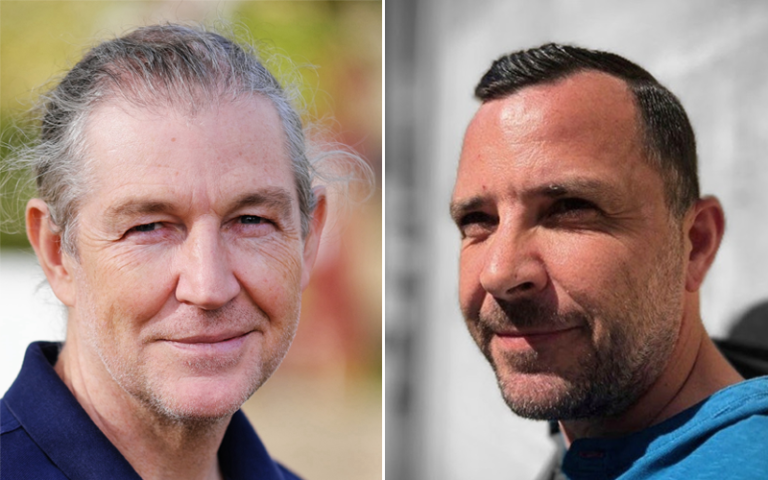Two UCL academics honoured by the Institute of Physics
18 October 2023
Professor Chris Kay (London Centre for Nanotechnology at UCL) and Dr Jonathan Breeze (UCL Physics & Astronomy) are among a team of researchers who have been awarded the prestigious Michael Faraday Medal and Prize from the Institute of Physics.

The team, consisting of six academics at UCL, Imperial College London, the University of Northumberland and Università degli Studi di Torino, were honoured for their role in discovering the first solid-state room-temperature masers in pentacene and then in diamond.
The maser is a sister technology of the laser, but emitting coherent microwave radiation instead of light. It is the ultimate amplifier for microwave signals, boosting weak electromagnetic radiation without contributing additional noise.
Although invented more than 60 years ago, the maser has had little widespread impact because it was inconvenient to use, only functioning in high magnetic fields, in a vacuum and at cryogenic temperatures close to absolute zero. Despite these limitations the maser found niche application in radio astronomy and deep-space exploration.
The team’s work in getting a solid-state maser to work continuously at room temperature opens up many life-enhancing applications for the technology in fields such as medical imaging, quantum computing, and even the search for life on distant planets.
Dr Breeze said: “I’m absolutely delighted the team have been awarded the Michael Faraday Medal for their work on masers. It was a truly multidisciplinary team effort – involving theory, simulation and experiment in physics, chemistry, and materials science.”
Professor Kay added: “The maser project certainly counts as one of the scientific highlights of my career; one that only came to fruition due to the diverse contributions of an outstanding team of scientists. All of us have been forced to move outside our comfort zones in order to understand different areas of physics and chemistry. This has made the last decade challenging, nerve-wracking, exhilarating, and ultimately highly-rewarding.”
“The award of the Faraday Medal is a wonderful recognition of the team's achievement in establishing a novel area of physics.”
The Michael Faraday Medal and Prize for experimental physics was previously awarded to Professor Richard Ellis (UCL Physics & Astronomy), for his pioneering contributions to faint-object astronomy, to Professor Jennifer Thomas (UCL Physics & Astronomy), for her outstanding investigations into the physics of neutrino oscillations, and (when it was known as the Guthrie Medal and Prize) to the late Professor Marshall Stoneham (UCL Physics & Astronomy), for his wide-ranging theoretical work on defects in solids.
The Institute of Physics (IOP) is the professional body and learned society for physics, and the leading body for practising physicists, in the UK and Ireland.
IOP President Professor Sir Keith Burnett said: “On behalf of the Institute of Physics, I want to congratulate all of this year’s award winners. Each one has made a significant and positive impact in their profession, whether as a researcher, teacher, industrialist, technician or apprentice and I hope they are incredibly proud of their achievements.
“There is so much focus today on the opportunities generated by a career in physics and the potential our science has to transform our society and economy and I hope the stories of our winners will help to inspire future generations of scientists.”
Links
- Institute of Physics announcement
- Michael Faraday Medal and Prize
- Professor Chris Kay’s academic profile
- Dr Jonathan Breeze’s academic profile
- London Centre for Nanotechnology at UCL
- UCL Physics & Astronomy
- UCL Mathematical & Physical Sciences
Image
- Professor Chris Kay, left, and Dr Jonathan Breeze
Media contact
Mark Greaves
E: m.greaves [at] ucl.ac.uk
 Close
Close

